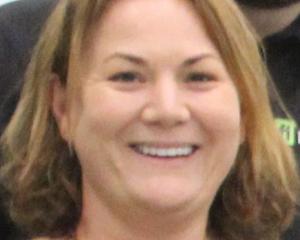Sheep farmers may once again start funding the marketing of wool should they approve changes to Meat and Wool New Zealand's commodity levy.
The grower organisation is seeking approval to reset the levy for sheep meat at between 60c and 80c a head, beef at $5.50 to $6 an animal and wool at 5c a kg at the first point of sale, with some of the wool levy to be used for marketing and promotion.
Farmers have been paying 40c for sheep, $3.60 for cattle and 5.25c a kg for wool.
Since the demise of the Wool Board about 10 years ago, farmers have not paid for promotion of the fibre, with the levy used for market access lobbying and for research.
But, returns for what was once one of our biggest export earners have since plummeted.
Meat and Wool New Zealand chairman Mike Petersen told farmers at yesterday's annual meeting of the grower body near Gore that any promotion by the board would be through joint ventures with exporters and with parties contributing $1 for $1.
Farmers have paid a wool levy of 5.25c a kg, but the total levy collected has fallen between $3 million and $4 million since 2003, due to falling sheep numbers, from about $12.2 million to a forecast $9.3 million this year.
Mr Petersen said in an interview that initial discussions with farmers indicated a preference for them to fund some wool marketing and promotion.
One proposal being finalised was a wool enterprise programme, a fund to help small initiatives for wool companies, such as assisting with a marketing plan, business development or to help find sources of capital.
The final size of levies to be charged would depend on what functions farmers wanted the board to perform, but for the past decade the average levies paid per farm have been falling.
In 1999-2000 an average farm paid $3436 and this year $1937.
Mr Petersen said the board proposed six areas of activity: leadership, representation and influence; information and analysis; innovation and uptake; market access; market development and skills and education.
It also proposes moving some functions away from Wellington and, while no decisions had yet been made, that could include aligning skills and education roles alongside Massey or Lincoln Universities, and relocating research functions to science campuses.
The board was also proposing working with other rural service companies to gather and dispense information to the nation's 15,000 farmers, a role previously done by its seven field officers.
Farmers will be consulted from April to June after which the board would consider the submissions and prepare a final proposal which farmers would vote on in August with the result of the election known in September.












